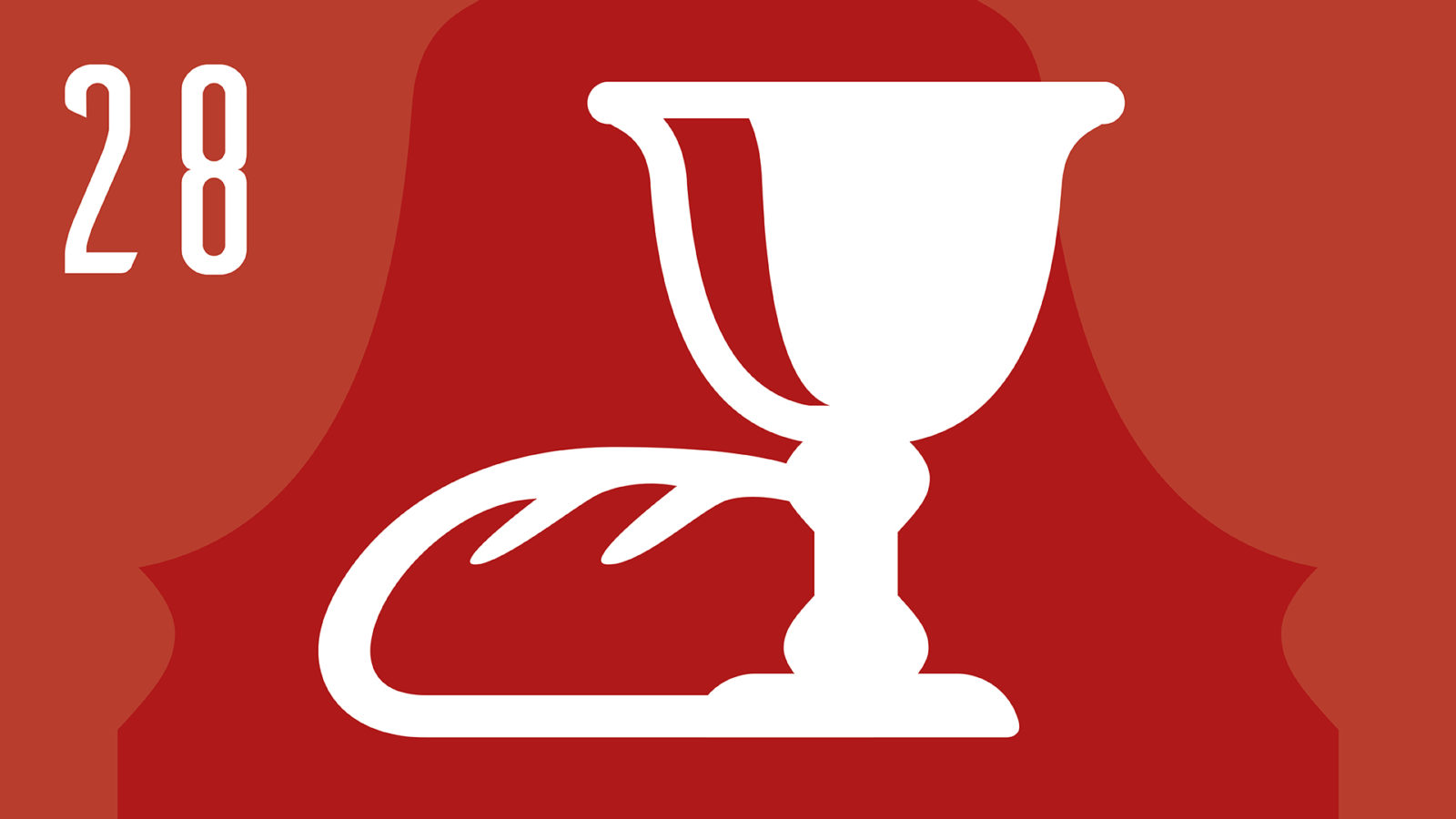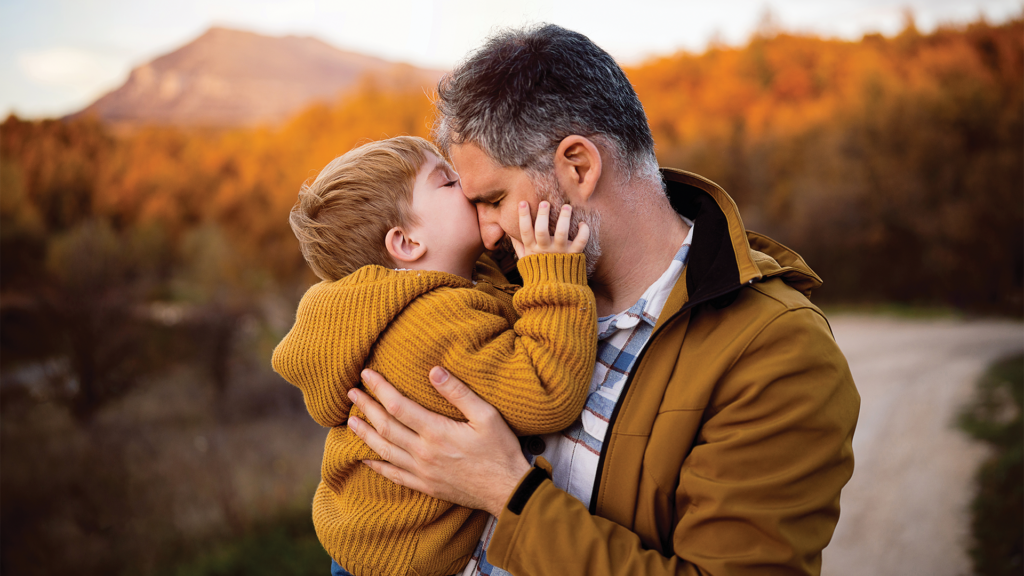The Lord’s Supper
The Lord’s Supper is a participation in the emblems of the body and blood of Jesus as an expression of faith in Him, our Lord and Saviour. In this experience of communion Christ is present to meet and strengthen His people. As we partake, we joyfully proclaim the Lord’s death until He comes again. Preparation for the Supper includes self-examination, repentance and confession. The Master ordained the service of foot-washing to signify renewed cleansing, to express a willingness to serve one another in Christlike humility and to unite our hearts in love. The communion service is open to all believing Christians. (Matthew 26:17-30; John 6:48-63; 13:1-17; 1 Corinthians 10:16, 17; 11:23-30; Revelation 3:20.)
“You never really know someone until you share a meal with them!”
A girl said this to me as she grabbed a handful of my hot chips and ate them without asking first. I was mortified. Horrified! I asked myself, Is this normal? Is this what I am in for over the next few years? It happened on my second day of eating at the Avondale cafeteria. I barely knew the girl I was sitting across from and this was the first time they had served hot chips. My favourite! As it turned out this actually became a semi-normal experience. Everyone you eat with becomes family in a way and sharing food is a hugely bonding experience. (But I would still say asking first is a good idea.)
I like to imagine the friendship and even brotherhood that Jesus would have had with His disciples. Beyond the teacher and disciple roles they had, I feel they would have had an amazing and deep friendship. Their meals together would have been incredibly insightful—full of much laughter, in-jokes and smiles.
The Last Supper would have been more solemn than usual though. Jesus had done everything with His disciples for the past three years and now He knew it was their last meal all together.
We’ve all been there, right? Surrounded by your friends but there’s something on your mind that they don’t and possibly can’t even know about. It’s isolating, burdensome and pretty draining.
Yet Jesus used this time to establish something new with His disciples. He shared a symbolic meal with them so they would remember Him and all of His actions. [pullquote]
This meal is meant to be regularly eaten with all those who choose to follow Jesus. I appreciate that Jesus wasn’t too prescriptive in the specifics (how frequently, the settings it should be in etc), but focused on the meaning: His body—the pain He went through in taking our punishment upon Himself, and the blood—the price He paid for us in His sacrifice.
I love this. It actually binds us all together as we gather and it helps us refocus on the very reason we are here in the first place. Jesus.
I don’t think it’s any coincidence that Jesus chose to use food to convey this message either. There is something powerful that happens when we gather around food. As argued by Alice Julier in her book Eating Together, food seems to level us out and helps us to perceive those of different races, genders and socioeconomic backgrounds as more equal than we do in other social situations. It is radical community building at its finest and of course Jesus was right there at the forefront, using it to set up something that constantly brings us back to the gospel together. It tears down the walls between us to re-centre us in the cross.
This is why again and again, I find it so shocking that Jesus chose to do this with Judas the betrayer at the table. Jesus knew and even foretold that Judas was going to betray Him. He could read his heart. He probably knew Judas’ plan for betrayal was already set in motion. Scripture shows that there was essentially a final act Judas had to do to set everything in place and, straight after this meal, he was going to do it.
Yet even knowing all of this, Jesus chose to include and invite Judas into this meal, into the remembrance. Jesus didn’t make him leave the room, Jesus didn’t stop him from taking part. Jesus included him just like all the other disciples.
It’s no surprise that Jesus handled these situations a lot better than I would have. If I was with my closest friends and had known a friend had betrayed me, I would want to throw the bread at the guy’s face. Hard.
Do you know what this says to me though? Jesus knew what Judas was going to do and still had the power to forgive him. He foresaw everything Judas was setting out to do and pushed it all aside, saying “Take part in this because I love you and am about to go through all this for your sins too.”
This shapes the Lord’s Supper in a whole new way for me. It moves from just an act of remembrance that I fall deeper into each time I take part in it, to also become a call to action.
The Lord’s Supper is a call to forgiveness. I look back on how freely I have been forgiven for my sins and transgressions and it propels my heart to forgive those who hurt me. Even those who do it deliberately, which is definitely not easy.
I use the time during the Lord’s Supper to really think about anyone in my life whom I’m feeling bitterness or anger towards, those whose actions I’ve been holding onto in my heart. I use it as a time to let that go and surrender my heart again to Jesus.
I would challenge people to take time to take the bread and the cup in the context of a small group so you can spend longer reflecting on this and even sharing what’s happening in your heart with each other.
When we take the bread and the cup, we don’t do so in a way to show who is in and who is out. It actually reminds us that we are all in. From the worst to best, none of us deserve it or could earn it, but we are in. We are all forgiven and called to forgive others. We are loved and called to love others.
So I guess it’s kind of true in the end.
“You never really know someone until you share a meal with them!”

Joshua Stothers is youth pastor of Palmerston North Seventh-day Adventist Church, NZ.






